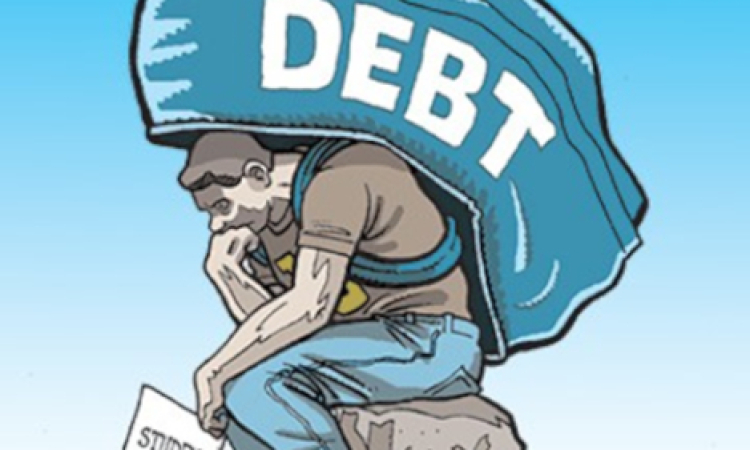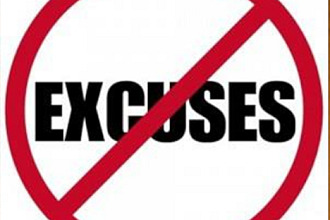A growing number of financial educators and economists are concerned that the number one debt problem in our country is student loans.
In the past, the number one consumer debt was credit cards or vehicle loans. In recent years, student loans have risen to the top with the average student currently owing over $30,000. This student loan problem has affected not only the twenty-year-olds but many in their retirement years who are still paying on loans they received in their forties for masters and doctoral programs.
Student debt is also a major barrier to those who desire to serve... In a recent article, Katherine Burgess describes a graduate from Bethel University in St. Paul, Minnesota, who believes she is called to serve God... She is still struggling to pay off $43,000 in student loans after graduating two years ago. Like many others, she is caught in unfortunate quandary. Most religious agencies will not accept graduates with significant student loans. Because of this crisis, a number of schools and universities are beginning to enhance loan repayment programs for students who feel called to serve overseas. Examples of these are San Diego Christian College, offering loan-forgiveness programs for missionary pilots, and Southwestern Medical Clinic Foundation, for medical missionaries. One college director of development puts it this way, "Our goal is to make sure anyone who truly feels called to serve God can follow that call of God on their heart without worrying about student debt they may have incurred." 1 .
This current student debt crisis is a moral dilemma with which religious colleges and universities must struggle. There is, however, a larger immoral issue that we as a nation need to face. Our federal government has an annual deficit of more than $1 trillion and a national debt exceeding over $17 trillion a year or approximately $60,000 per U.S. citizen.
First, is the borrowing itself immoral? Not according to the Scriptures. In fact, the Bible does not call debt a sin. However, it does remind us that borrowing has negative consequences. In Proverbs 22:7, the Bible reminds us of these consequences when we allow a creditor to have power over us. This same borrowing as a nation for short-term needs can lead to a long-term decline and the enslavement of the whole nation (Nehemiah 5:3-5). On the other hand, some would argue how could continuing to borrow be wrong when Washington's annual deficit is smaller now than it was five years ago and our accumulated federal debt as a percentage of our gross domestic product is only half of what it was at the end of the Second World War?2
Second, is it wrong to give assistance to those less fortunate than ourselves both at home and overseas? As a super power, is it a mistake for America to generously lend and give debt forgiveness to other smaller nations? The Scriptures call for generous lending and debt forgiveness both individually and nationally. However, a government that develops a pattern of spending considerably more than what it raises behaves both unwisely and immorally. Further, we must be careful not to carry this concept of American generosity too far, or we will become the beggar nation. All believers, whatever their political persuasion, must petition their government to be fiscally responsible.3
Third, is the debt immoral or is it the deficit lifestyle? Amy Black puts it succinctly in this statement, "Accruing debt itself is not immoral, but a culture of debt most certainly is. Debt has become the American way of life, one that threatens our flourishing and that of future generations. In our personal lives, we make daily budget decisions. Many choose to take on debt for expensive items deemed worthy investments or necessities—the purchase of a home, replacing a leaky roof, loans to defray the expense of college tuition. Such borrowing seems prudent. On the other hand, many Americans accrue debt to artificially maintain an extravagant lifestyle or accumulate beyond what they can ever pay. Such practices violate the principle of wise stewardship."4
Finally, being in debt is a sign of moral failure if the budget—household or national—ensures future instability. The path to moral responsibility is to remind each of us of the Biblical principles of prudent stewardship and collective sacrifice.
Develop a budget
Start with a budget by sitting down with your spouse and figuring out what your family can afford to spend on gifts and other holiday items without accumulating a credit card debt. Make it your goal to stay within your budget realizing that this is the most important step you and your family can do to control your holiday spending.
Make a list
Sit around the family table and write down every person you would like to include on the holiday list and what amount you want to spend on them. Remember, for some people a simple picture of your family or a plate of homemade cookies is sufficient.
Have a limit
Having a limit is important for two reasons—the first is how much you choose to spend on a particular individual, and the second is how many presents you will purchase particularly for your children and especially those wonderful grandchildren.
Develop a strategy
Be a great listener during the months of November and December. Pay attention to those casual comments such as when your spouse says, "I wish I had that tool" or "That's exactly what I need to complete my kitchen or tool set." Write them down and when a sale comes up in those last two months of the year you can get what your loved ones desire.
When it comes to holiday debt, keep this in mind—gifts are quickly forgotten but credit card debt seems to go on forever.
References:
1 Katherine Burgess, "End Missionary Debt," Christianity Today, April 2014, p. 22.
2 David P. Gushee, et. al., "Three Views: Is the $17 Trillion Federal Debt Immoral?" Christianity Today, January/February 2014, pp. 26, 27.
3 Ibid.
4 Ibid.
Picture originally found here

























